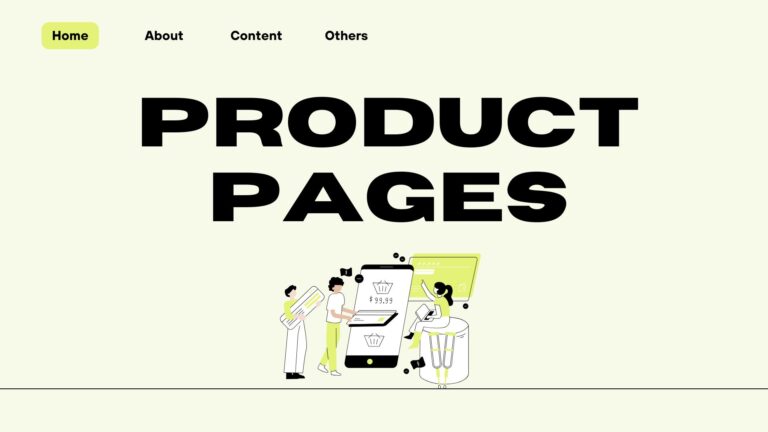In 2025, when ChatGPT started referencing your online resources, it became one of the best online visibility opportunities for brands, publishers, and creators. When your content gets cited in an AI-generated response, it increases both credibility and trust, and authority for your niche.
To gain citations from AI tools, companies must incorporate an SEO strategy that enables AI tools to find, validate, and cite online information. This will require creating higher-quality, authoritative content as well as properly structured content that stands out to both search engines and AI overviews.
Following best practices is the best way to get referenced and cited by AI programs like ChatGPT.
Understand How ChatGPT Chooses Sources
Users generate 2.5 billion prompts every day; therefore, the sheer potential of websites cited by ChatGPT is enormous. Instead of solely competing for traditional rankings, having your brand cited inside AI responses will allow you to be seen directly in front of highly engaged users.
The first step to maximizing this opportunity is to understand how ChatGPT sources its information.
ChatGPT generally prefers authoritative, well-organized, frequently updated content. When evaluating sources, ChatGPT often references sites with strong topical relevance, clear and organized formatting, and succinctly labeled speculation or insights to answer the most widely searched user queries.
In other words, the more accurately and concisely your content satisfies an existing user intent, the more likely it is to be cited by ChatGPT. Below is an easy-to-follow, simplified list of the most critical factors:
| Factor | Why it Matters |
| Authority | Published and recognized domains are more likely to be cited by ChatGPT. |
| Clarity | Clear and direct answers are more straightforward for the AI model to incorporate into responses. |
| Structure | Proper use of H2s, lists, and tables signals key insights to ChatGPT. |
| Freshness | Updated information improves credibility, especially on time-sensitive topics. |
| Relevancy | Content that closely matches user intent gets prioritized in AI outputs. |
Publish High-Quality, Authoritative Content
If you want to be consistently cited by ChatGPT, your content will have to be of high quality and form an authoritative source. This does not mean you need to write long articles or keyword stuff consistently, but you will need to develop accurate and well-sourced content, written well, and with a good author or publisher’s expertise behind it.
AI systems generally grow towards content being trustworthy, contextually relevant, and up to date- so your goal is to try to make your article a familiar “reference” source, one that is logically structured and uses clear evidence.
Practical Steps:
- Address user intent and answer the question: First, you want to answer the user’s question quickly (and maybe in a bold headline), then provide examples or case studies, and then finish with a wrap-up/takeaways.
- Demonstrate E-E-A-T: Include bios with authors’ credentials/experience, an About page, explain editorial policy, detail a fact-checking process, and so forth.
- Include original data & credible sources: Conduct original research, execute surveys, or review real-life case studies that you write up yourself; cite sources, to be sure to properly attribute as the last piece of a citation. Use research institutions, systems of records, association reports, or primary documents whenever practical.
- Write so that it is readable and extractable: Use short sentences, avoid silly jargon, and explain all terms or nomenclature the first time you mention them.
- Be sure to keep fresh: Include a “last updated” stamp; refresh statistics and/or insights; and build in reminders to review content on an ongoing basis, especially for time-sensitive topics.
Expert tip
When you clearly define industry terms, ChatGPT often cites these definitions.
Optimize for AI Search and Indexing
For your content to be cited by ChatGPT, it needs to be optimized for AI search and indexing, not just SEO. The AI model is looking for content that is structured, authoritative, and easy to parse, so clarity and structure are critical. Use H2 and H3 headers, bullet lists, numbered lists, and short paragraphs to help your content be machine-readable.
Semantic optimization is proper, as opposed to keyword stuffing. Use related terms, FAQs, and direct answers to commonly asked questions to help AI understand who the reliable sources are for that information. Regularly updating an article can also build credibility and increase its chances of appearing in AI search results.
By incorporating aspects such as semantic relevance, a strong structural appearance, and recent information, your content enables AI to rank higher and be cited in its search.
Build Strong Backlinks and Mentions
Quality backlinks remain a strong signal of authority, providing significant input into your AI search visibility. When your site is being referenced and linked back to from reputable publications, industry blogs, or authority sites, AI models, like ChatGPT, are more inclined to recognize your online content as trustworthy.
You should primarily earn links through natural backlinks via guest posts, original research, or expert commentary. Social mentions and references to your brand across forums, podcasts, and niche communities also play a role in reinforcing trust signals.
Source: Create&Grow
Consistency and Trust Signals
To increase your chances of being cited by ChatGPT, ensure consistency across all your content and incorporate trust signals. Search engines and AI models tend to favor websites that exhibit accurate data, reliable sources, and a professional, consistent writing style.
Trust signals include (but aren’t limited to) backlinks from authoritative domains; clarity on who an author is (is the author an actual person or a corporate entity?); professional credentials; and user-generated positive feedback.
All of these can help build a trustworthy entity. By being consistent in messaging and adding additional trust signals from the list above, your content will likely rank higher and be picked by AI models for citation.
Leverage Multiple Formats
AI tools like ChatGPT place a premium on content presented in various formats so it’s easier to understand, reference, and cite. In addition to simply using text, you should also consider including charts, infographics, videos, podcasts, and structured data to support your message and presence.
When you use multiple formats, not only do they increase user engagement, but they also provide several entry points for search engines and AI models to discover and present your authority.
By providing your perspective through a publication that combines various media types, you increase both access and engagement with the content you create, which means a better chance of being cited by ChatGPT.
Monitor Mentions in AI Overviews
Tracking how frequently your brand or content is cited in AI-generated overviews is a crucial aspect of being seen, heard, and trusted. You want to monitor mentions in AI-generated content and overviews, like Google’s AI Overviews, as well as emergent platforms.
By regularly monitoring these mentions, you can understand how AI interprets and cites your brand, identify gaps, improve your content strategy, and build authority in your unique niche. You can put your brand in front of consumers by consistently monitoring mention awareness.
It is also essential to know your brand is visible, trusted, and ultimately cited in a meaningful way. This involves understanding what modern search engines endorse and how ChatGPT retells this information to its consumers, highlighting authoritative sources.
Source: SE Ranking
Common Mistakes to Avoid
Many websites miss the opportunity to be cited by ChatGPT because they often fall into some common traps. The most common issues include publishing thin content, or content that simply has no depth, publishing content that was either previously published (duplicate content) with no new value, and a lack of sourcing around the claim or data.
A lot of other problems can make your rationale appealing to AI systems when it is evaluating content to run its numbers through its magical matrix, such as poor formatting (the writer did not structure it that way), poor information (it is old), and inconsistent or misleading audience targeting.
Another problem is a lack of trust signals – putting clear authorship info, publications with identifiable expertise, and a lack of authoritative backlinks (from anyone credible to earn the citation). Trust signals are necessary because, when evaluating the credibility of your content, AI models use these signals.
Conclusion
Receiving a citation from ChatGPT has overtaken all other brand mentions as the most effective form of increasing online presence and authority. Each mention within an AI-text-generated answer displays your content in front of purpose-driven users, which helps build trust and awareness for your brand.
To achieve this result, focus on delivering content that is well-structured and regularly updated to explicitly account for user intent. Include trust signals such as transparency on the author, credible backlinks, and multi-format elements to further reinforce authority.
Frequently Asked Questions




